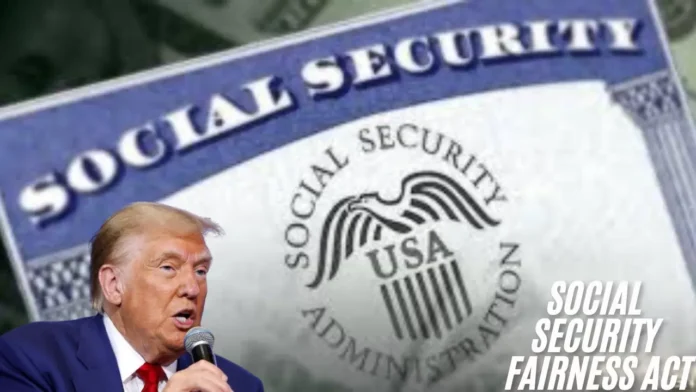Social Security Fairness Act: A Game Changer for Retirees and Public Employees
When it comes to the most important legislation affecting retirees, especially in the public sector, nothing beats the Social Security Fairness Acts which deal with concerns about issues that involve teachers, police officers, state workers, and other government employees. This bill, enjoying bipartisan support, will address the long-standing inequalities that Social Security has imposed and continue to do so on millions of retired workers and their families. In this article, we will dig into what the Social Security Fairness Act is, how it impacts retirees, and the likely path forward for the bill in Congress.
What is the Social Security Fairness Act?
The Social Security Fairness Act is a legislative bill aimed at removing two major provisions within the Social Security system that have unfairly affected public workers and their families: the Windfall Elimination Provision (WEP) and the Government Pension Offset (GPO). These provisions reduce the amount of Social Security benefits that some retirees receive since they draw pensions from jobs that are not covered by Social Security.
Windfall Elimination Provision (WEP)
The Windfall Elimination Provision effectively reduces workers’ Social Security benefits who have earned pensions for other jobs not covered through Social Security-including the public sector types of employment. For example, for those teachers who contribute to the state pension fund but not Social Security, WEP cuts may be deducted under WEP while they are actually eligible for Social Security through some of their work. The Social Security Fairness Act seeks to eliminate this reduction, ensuring that public sector workers are not penalized for working in jobs that are not covered by Social Security.
Government Pension Offset (GPO):
The Government Pension Offset (GPO) limits spousal benefits for the public sector worker’s family, and this really hurts the widowers. A surviving spouse with a government pension is susceptible to losing his or her Social Security benefits or experiencing a complete loss of them altogether. This provision under the current law can be done away with through the Social Security Fairness Act, in which full spousal and survivor benefits will be returned to those people affected.
Why is the Social Security Fairness Act Important?
Cut in Benefits for Retirees Undermined for Years When public workers retired, there typically was a final paycheck and sometimes a small “severance” bonus. But their Social Security benefits were another matter. For decades, these men and women-and their families-were subjected to unfair cuts in their hard-won Social Security benefits. About 2 million retirees are affected by the WEP, and close to 800,000 surviving spouses are affected by the GPO. These provisions were once designed to balance out what was then seen as the perceived unfairness of the fact that workers in the public sector, besides receiving Social Security benefits, also received government pensions. Critics posit that these are dated provisions, meting out undue punishment to people who have worked pretty hard in public service positions.
Impact on Public Workers and Their Families
The elimination of the WEP and GPO provisions will mean a tremendous increase in the retirement income of many public workers including teachers, police officers, and first responders. In more practical terms, this will mean better Social Security benefits for workers who have worked in the public sector and private sector. The beneficiaries of such workers-their surviving spouses-no longer have to worry about being confronted with an offsetting government pension or the reduction/elimination of their benefits. They get the security they deserve.
What Happens Next? The Senate’s Role in Passing the Bill
What’s Next? The Role of the Senate in Passing the Bill
Although the Social Security Fairness Act has passed the House of Representatives overwhelmingly on bipartisan lines, the Senate would decide its fate. The bill is highly co-sponsored by 62 senators, but it still needs to come to the Senate floor for a vote.
Timeline and Challenges in the Senate
The Social Security Fairness Act works within a tight timeline. In case the Senate fails to vote on the bill by December 31, the end of the ongoing session, the bill will effectively die, and the lawmakers will have to reintroduce it to the next Congress. Given the urgency, the apprehensions are rife that if the bill does not pass in this session, the momentum for the reform may dissipate, and retirees and their families may not get out of the limbo.
Project cost is one of the significant hurdles for the passage of the bill in the Senate. The Congressional Budget Office (CBO) estimated the removal of WEP and GPO would cost the government over $190 billion over ten years. Some lawmakers can debate that this investment is for a fair treatment of the retirees. Others have concerns for long-term impacts to the solvency of Social Security.
Support and Opposition
This act has already enjoyed wide backing from advocacy groups such as The Senior Citizens League, which has campaigned for the elimination of the WEP and GPO since the early 1990s. Key political figures sponsoring the bill include Rep. Abigail Spanberger (D-Va.) and Rep. Garret Graves (R-La.), who said all Americans deserve what they have earned in Social Security regardless of occupational background.
Fiscal conservatives and some policymakers, however lament the immense cost as well as the long-term effect this will have on the trust fund to keep Social Security solvent for the future. Regardless of all these criticisms, supporters to this bill say it will serve a crying need for equity within the system of Social Security given to people that have given their lives to public service.
What’s Next for the Social Security Fairness Act?
This is a political climate where the year can be ended by the Social Security Fairness Act clearing the Senate. Its passage would bring relief for public sector workers and their families when rightly deserved to receive full Social Security benefits.
The cost of the bill and the implications it holds for the long-term health of the Social Security program means that, by far, the issue is not resolved. A further matter of consequence would be how the government in power and public opinion shape regarding this legislation will necessarily shape the course of the legislation in its process through the halls of Congress.
Conclusion: Balanced Social Security Benefits
The bill, called the Social Security Fairness Act, would end unfair penalties against public sector workers and their families again, truly a step closer to making the system fair, especially for public service workers. That would give the employees back what belongs to them. Now that the bill is up for consideration in Congress, it remains to be seen whether legislators can overcome financial challenges pertaining to passage of the bill.
Meanwhile, retirees and advocates continue to push for reform and hope the momentum built up in the House carries over into the Senate, with this much-needed change made into how Social Security benefits are dispensed to public workers and their families.
> Warren Buffett’s Top 10 Money Mistakes to Avoid | Smart Financial Tips


